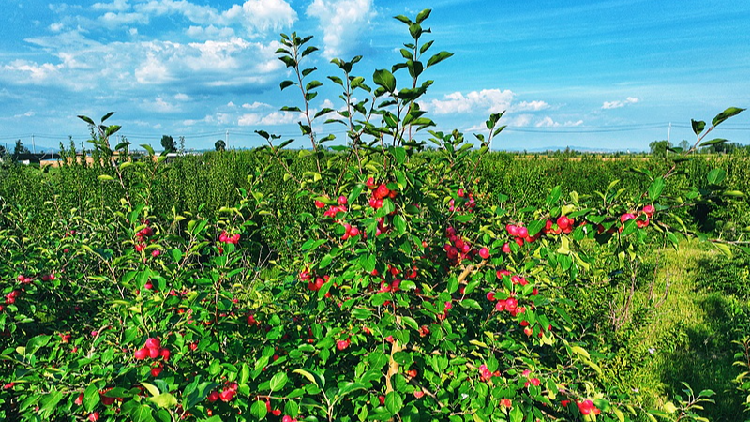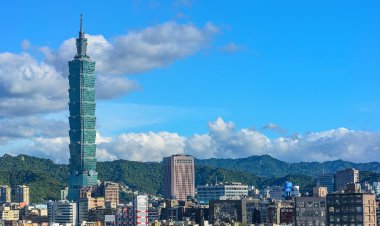SE Asia experiences new taste with Chinese desert fruit export
Chinese desert fruit exports are introducing a unique flavor to Southeast Asia.

Refrigerated trucks make regular trips to the orchards in the Horqin Sandy Land—a significantly desertified zone in Northern China's Inner Mongolia Autonomous Region—to pick up and deliver fresh crabapples to coastal shipping ports, from where they're exported to Southeast Asia.
Teng Dayong, who operates a significant 190-mu crabapple orchard in Horqin Left Wing Middle Banner of Tongliao, Inner Mongolia, anticipates a yield of 2,000 kilograms per mu this year, which should net him an income of 10,000 yuan per mu.
"Nearly half of the fruit from my orchard has been ordered for export to Southeast Asia," Teng stated.
These vibrant red fruits are collected and driven to coastal cities like Dalian, where they are loaded onto ships. From there, they travel by cold-chain transport to appear on supermarket shelves in countries like Malaysia, the Philippines, and Thailand within ten days.
Covering over 77.6 million mu, Horqin Sandy Land stretches across three provincial-level regions in China: Inner Mongolia, Jilin, and Liaoning. Aoserji, the local director of forestry and grassland administration, recounted how in past decades, residents planted poplar trees to defend against the sand, which weren’t economically beneficial and used an abundance of water.
The forestry and grassland academy in Tongliao addressed this issue by developing a crabapple variety that is both economically viable and ecologically beneficial, explained Aoserji.
The produce is now enthusiastically cultivated by farmers for its sweetness, nutrition, and resilience to cold and drought. Tongliao, situated in the vast expanse of Horqin Sandy Land, now has 350,000 mu of crabapple orchards producing over 100,000 tonnes annually, with the output value nearing 500 million yuan.
This year, Teng partnered with a Malaysian Chinese entrepreneur, Zeny Yong—a long-time buyer of his crabapples—to start a fruit packing and export venture.
Additionally, more than 100 tonnes of crabapples are exported annually from Kailu County in Tongliao to several countries, including Thailand, Malaysia, and the United Arab Emirates. The county has also constructed a cold storage facility capable of holding 1,000 tonnes of fruit, enabling them to maintain the freshness of the crabapples until as late as April or May the next year for further export.
Anna Muller for TROIB News
Find more stories on the environment and climate change on TROIB/Planet Health












